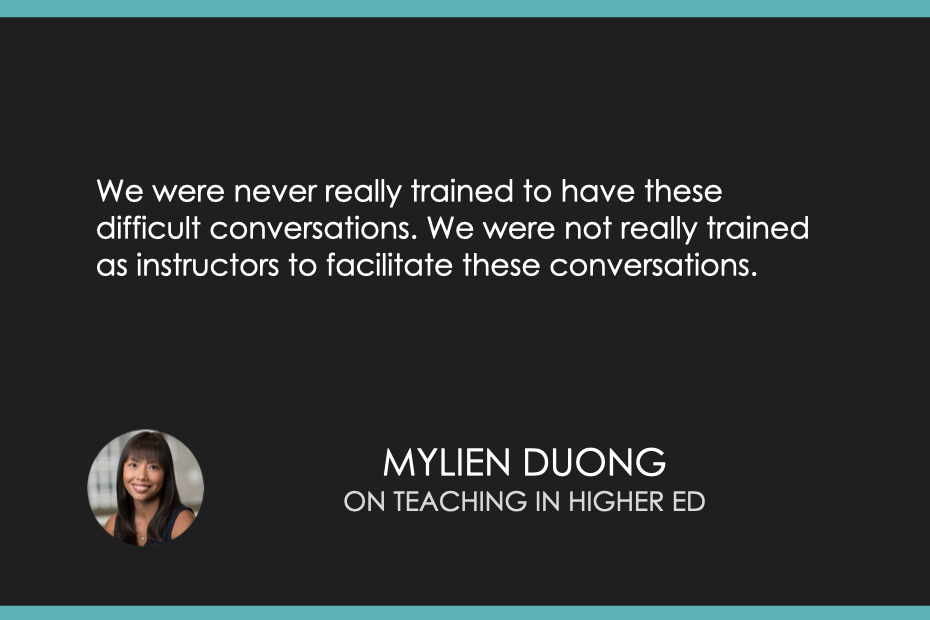
 Teaching in Higher Ed
Teaching in Higher Ed Facilitating Contentious Conversations in Your Classroom
28 snips
Aug 22, 2024 Mylien Duong, a specialist in facilitating contentious conversations in educational settings, shares powerful strategies for tackling difficult topics in the classroom. She emphasizes the importance of preparing students for civic engagement and establishing a safe environment for discussions. Mylien discusses the significance of humility, effective questioning, and the impact of personal beliefs on perceptions of truth. She also introduces the concept of cyclic sighing as a tool to enhance classroom dialogue, leaving listeners inspired to transform contentious debates into constructive learning experiences.
AI Snips
Chapters
Transcript
Episode notes
Challenges of Facilitation
- Facilitation of contentious conversations is challenging due to polarized, high-stakes societal context.
- Instructors often feel untrained and unprepared as they are experts in content, not dialogue management.
Role of Education in Engagement
- Preparing students for civic engagement requires equipping them to work with diverse beliefs.
- Effective learning conversations help students change minds and build shared understanding.
Preparation is Key
- Prepare contentious conversations by building trust, shared knowledge, and establishing clear norms.
- Setting context ahead increases the chance of productive dialogue.

